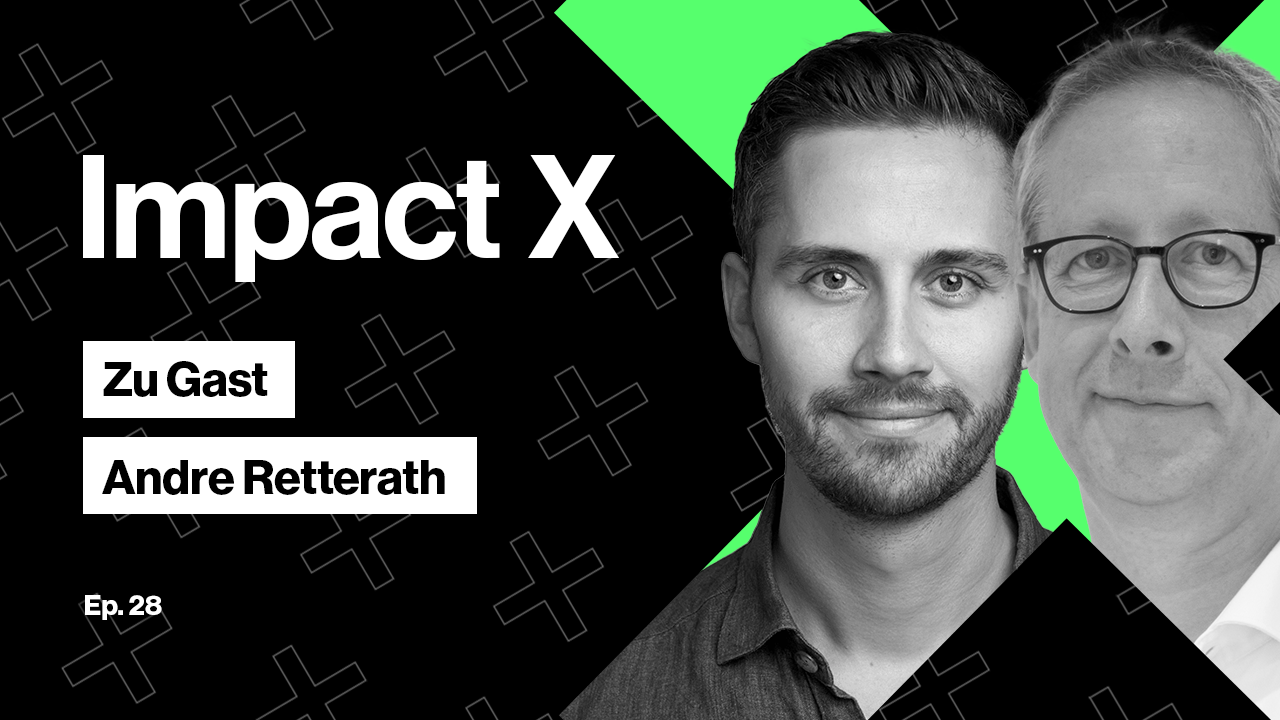You would think that there is at least one thing that unites us all: the reality of the physical world that surrounds us. We all move on the same planet with the same physical laws, the same limitations, the same natural constants, the same scientific and cognitive process. We can distribute and access information across the entire planet in milliseconds, increasing coherence within communities over long distances. This is what makes it possible for communities to form and develop over greater distances.
In practice, however, this does not lead to ever-greater coherence within a global community, but to an increasingly fragmented world of different information bubbles. We mentally make ourselves comfortable in these information bubbles and nestle down with our peers – each in our own group and peer reality.
Simplification and convenience through system coherence
Global networking and digitalization is therefore not leading to an ever broader and deeper common overall reality for all people, but rather to even more fragmentation of information technology living spaces.
We can see this in politics, with the two camps in the USA as an extreme example. Groups that are closely connected in terms of their attitudes and concepts of life are almost enemies in other areas and take extremely opposing positions. But you can also see it in the economy in the various sectors, among analysts, media, investors, employees, consumers, and entrepreneurs: We all live in other (information) systems in the Luhmannian sense.
This becomes quite obvious in the unreal bubbles of social media worlds, in which we can gather in synchronized information bubbles of well-being. We don’t have to fear any contradiction or serious confrontation in these bubbles, especially since we have finally put chains on the trolls with laws and regulations (Network Enforcement Act). In reality, we have once again significantly limited uncomfortable diversity.
Synchronicity through global events
Before digital real-time networking, we mainly created spatially bound communication chambers. Now such bubbles can spread globally in industries, guilds, or specialized media communities. The creation of a shared reality across different groups has taken place over the last 100 years via real global events: major speeches, international sporting and world events such as the Olympic Games, the Football World Cup, the moon landing, economic crises, acts of terrorism and wars were simultaneously recorded and, above all, perceived. The same image of reality landed in every – at least Western – living room – no subgroups, no bubble thinking, but genuine synchronicity.
In a world in which marketing, storytelling and narratives determine communication and thus the apparent reality of billions of people, it is becoming increasingly difficult to grasp the “real” reality of life or to locate oneself as an individual in one of the many realities.
Through the manipulative practices of app, game and digital platform operators, we humans are moving further and further away from the real understanding of a situation, needs and requirements of our fellow human beings.
Different realities through artificial and asynchronous events
Wars, global catastrophes, or a virus are apparently still capable of synchronizing life-worlds today. Beyond that, however, it is above all global product launches for smartphones and cars or communication via the next disruptive technology that are transporting more and more people into the same reality.
The current mega-hype surrounding the so-called “Swifties”, as Taylor Swift’s fans call themselves, makes it clear that the synchronization of sub-communities in the future will be achieved primarily through artificially created live events. Anyone unable to purchase one of the enormously expensive concert tickets will attend the concert via livestream. This development is not an isolated case, as entire festivals can now be followed via livestream. And there it is, the hybrid of the real experience and the artificial experience of the internet. For those who don’t understand the excitement at this point: this article is not about the dramatic development of live musical events, but they are a good example of how different realities emerge in subgroups.
Central banks and states as reality distorters
We have to ask ourselves how bad things are for our species when such artificial events help to define the reality of our lives. Let’s move away from live concerts to crises. Whereas in the past, the key to the perception of economic crises, for example, was a crash, central banks and governments are now doing everything they can to prevent precisely this synchronized mass and market phenomenon from taking place. At the same time, this means that people no longer perceive an economic crisis as a crisis because it stretches over several years and always affects different subgroups. There is no general and overarching experience of an economic crisis and so this narrative now only exists as a theoretical construct that states try to prevent through debt policies and nice stories from central banks.
The clear laws of debt and interest rates
In “Changing Worldorder”, Ray Dalio described the compelling connections between interest rates, money supply and debt, which follow laws of nature similar to those of gravity or electric fields. The economic world is therefore also a system that surrounds us, a reality that none of us can escape. Just as the physical existence of the earth determines our lives, so does the economic system that surrounds us all – at the same time and on the same planet.
But we no longer perceive the effects at the same time. In the summer of 2022, the VC community in the USA had already realized that the world of ever higher valuations was coming to an end. It wasn’t until a year later that we really noticed it in Germany with our start-ups: there is no more money for digital platform models in the B2C sector or a business that might break even in three years. The Dax, MSCI and S&P 500 may look okay again, even though sentiment is subterranean, but the value lift of the last nine months in almost every index has been due to a few tech stocks. To put it in a nutshell and make it unmistakably clear: The reality of the “real economy” looks bleak.
The reality of interest rates and debt is therefore having to make its way through the balance sheets and reports of companies, and therefore through various markets, one after the other and with a significant time lag. While house prices have already fallen significantly in most regions in this country, there are regions in the USA that have yet to feel the effects.
But one thing is clear: the unreal times of zero interest rates are over for now – in fact, they are incomprehensible to people under 35 who have never seen any other times in their professional lives than the turbo growth induced by zero interest rates. So how long will it take for thousands of industries and communities to synchronize again and incorporate the realities and natural laws of interest and debt back into their actions?
The uncomfortable opportunity for entrepreneurs and investors
It’s not about conjuring up and talking up the next crisis. It is about identifying opportunities – regardless of whether there will be another significant correction or even a crash on the stock markets or whether we have already seen the lows on the stock markets.
It’s about recognizing the realities in your own sector, i.e. your own community, your own bubble and the overarching view of other sectors, systems, and markets. It is now important to form theses, think, anticipate the actions of others and then, above all, make your own decisions. This is exhausting and requires courage. Talking yourself into a crisis is of no benefit. But encouraging your management to see a crisis as an opportunity helps to create options.
As entrepreneurs, we must not just go with the flow of our own peer group and ignore what is not going well or even better elsewhere. If we as entrepreneurs really want to have an impact, then our world is more uncomfortable. Ultimately, we always counteract and correct because we should provide a different perspective on the perceived reality of our environment. We have to become reality transformers and bring realities into our bubble, just as economic crashes or other shock events used to do. Entrepreneurs, creators, and doers are the people who show others how things can or will be tomorrow. In our peer group, we have to ensure and synchronize regular reality checks. We are the people who are usually ridiculed by everyone for being too restless, never satisfied, or uncomfortable. Because no matter how things are going, we still ask questions and take on new, different perspectives. And that’s a good thing!
And even if we long for a peer group with whom we can discuss such things: The concrete decisions, especially the unpleasant ones, we have to make on our own. Because it’s not about following the herd in bubbles and communities, but about communicating the same perception to many and thus creating a shared reality within and beyond group boundaries.



